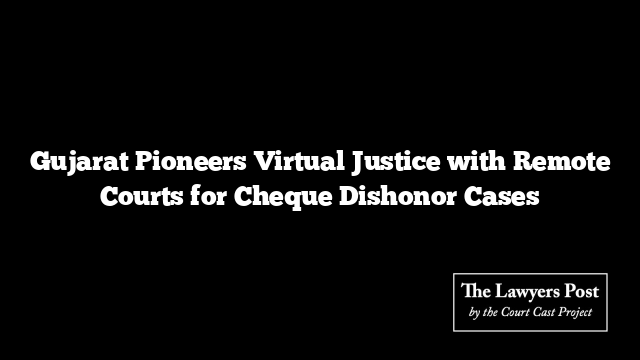In a forward-looking move, Gujarat has launched Remote Adjudication Magisterial Courts, setting a new standard for handling cheque dishonor cases under the Negotiable Instruments Act (NI Act). This groundbreaking initiative, part of the Statewide Access to Remote Adjudication System (SARAS) project, leverages digital technology to revolutionize legal proceedings.
The ceremonial inauguration, held on December 8 at the Gujarat High Court Auditorium, was graced by prominent dignitaries, including a Supreme Court justice, Gujarat’s Chief Minister, and the Chief Justice of the Gujarat High Court. The event marked a milestone in enhancing judicial efficiency through innovative approaches.
The SARAS initiative equips judicial officers across Gujarat to remotely adjudicate e-filed cases from anywhere in the state. Cases filed by banks and financial institutions in Ahmedabad’s Chief Judicial Magistrate (CJM) courts can now be handled via video conferencing, breaking geographical and infrastructural barriers.
Key features of the initiative include digital case documentation, e-authentication of records, and the seamless transmission of digitally signed proceedings to advocates and parties involved. These measures aim to eliminate backlogs and optimize the utilization of judicial resources, ensuring swift and efficient justice.
By enabling litigants and advocates to participate remotely from designated court facilities, Gujarat’s approach not only accelerates case disposal rates but also mitigates the need for additional court infrastructure. This digital leap reflects the state’s commitment to modernizing its justice delivery system and setting a benchmark for other regions to follow.
Through SARAS, Gujarat demonstrates how technology can redefine access to justice, fostering economic growth and strengthening public trust in the judicial system.





